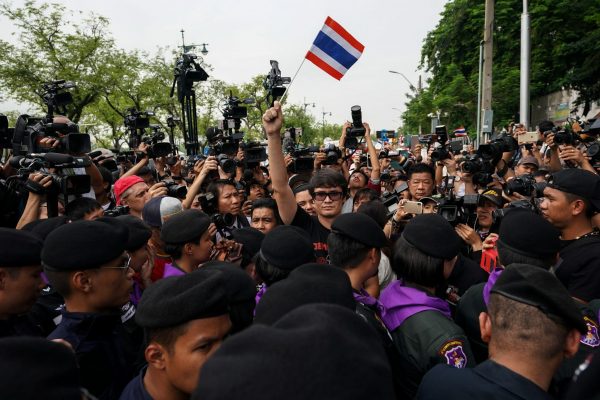The junta will use all means available to contest and win the next election. Its efforts will be reinforced by a constitution that designates one-third of the legislative assembly to military appointments. Consequently, Thailand is likely to be under long-term military supervision.
Although the country’s economy can still expand at a subpar 3–4 per cent rate for the foreseeable future, Thai politics will remain unsettled, unbalanced and inherently unstable. Stuck at a political standstill characterised by polarisation and conflict since 2005, Thailand risks stagnation if it cannot navigate a way out over the next 2–3 years.
At issue is whether the country can find a new balance between being a kingdom and a democracy. From 1947 to 1997, the Thai economy expanded phenomenally at about 7 per cent per year. Over this nation-building period, in the thick of its Cold War fight against communist expansionism, Thailand’s political order came into place. The regime revolves around the military–monarchy symbiotic relationship, flanked by a civilian bureaucracy fanning out across the country.
Despite elections and political parties that came and went, the trinity of military, monarchy and bureaucracy called the shots in Thailand until it was challenged over the past two decades.
Prior to the 1997–98 economic crisis, Thailand’s socio-political foundations were transformed. People had more means, education and information from media proliferation and broader exposure to the outside world. The boom before the economic crisis culminated in unprecedented political reforms, capped by the 1997 constitution that promoted greater political transparency, accountability and stability.
Thaksin Shinawatra, an ambitious telecommunications magnate, was uniquely positioned to capitalise on post-crisis recovery and the post-1997 new politics. Thaksin drew upon a network of police and military classmates and associates that accumulated new wealth from stock market growth and global finance.
Thailand’s two coups in 2006 and 2014 and a judicial move in 2008 — the three blows that ousted the Thaksin-aligned governments (including that of his sister Yingluck Shinawatra) — were rear-guard actions from the old political order to forestall changes and upend what they saw as an upstart and a usurper.
The anti-Thaksin yellow-clad columns are beneficiaries of the former era — not ignorant of the 21st century but insistent on entering it under their own terms. The pro-Thaksin red shirts, on the other hand, are an awakened 21st-century movement. They want to move beyond the old order as beneficiaries of Thaksin’s policy agenda.
This is the context of King Maha Vajiralongkorn’s rise after the long reign of his father, the late King Bhumibol Adulyadej. The monarch in Thailand has traditionally been considered the final arbiter and broker of power in times of crisis and debilitating impasse. But that modality was specific to and personalised by King Bhumibol and his earned moral authority as a unifying and rallying symbol for the country. A new monarch with an old traditional monarchy is uncharted waters for Thailand.
If the old order prevails via military-authoritarianism, underpinned by a manipulated constitution, then a military-led coalition government is likely when the election eventually takes place. The government would likely be spearheaded by the pro-military Pracharat party, smaller parliamentary allies and the junta-appointed senate. In this scenario, the political space would be more open but ultimately the traditional trinity of institutions would be in charge.
Thaksin’s Pheu Thai party and new banners such as Anakot Mai (Future Forward) appear set to be in opposition after the election. Constitutional rules favour smaller parties at the expense of bigger competitors. Factions of Pheu Thai have been induced to join the Pracharat party. Monitoring agencies, such as the election and anti-corruption commissions, are dominated by junta loyalists. The Democrat party, which has not won an election since 1992, is now split between those in favour of the junta and others who are sceptical. This party is unlikely to lead the post-election government, although it could play a kingmaker role if it cuts a deal with the junta.
The next election, in other words, will not resolve Thailand’s structural conflict. If authoritarianism prevails, tensions will likely build towards confrontation. Thailand’s civil society is seasoned and broad-based, while the economy is diverse, complex and sophisticated, meaning political repression cannot be easily exchanged for growth and better standards of living.
Thailand will lack an attractive narrative unless and until the old guard gives way to balance and compromise under a new reign. But the country’s political situation is likely to get worse before it can reach any kind of a new settlement.
Thitinan Pongsudhirak teaches international political economy and directs the Institute of Security and International Studies at Chulalongkorn University in Bangkok. An earlier version of this article appeared here in The Straits Times.

